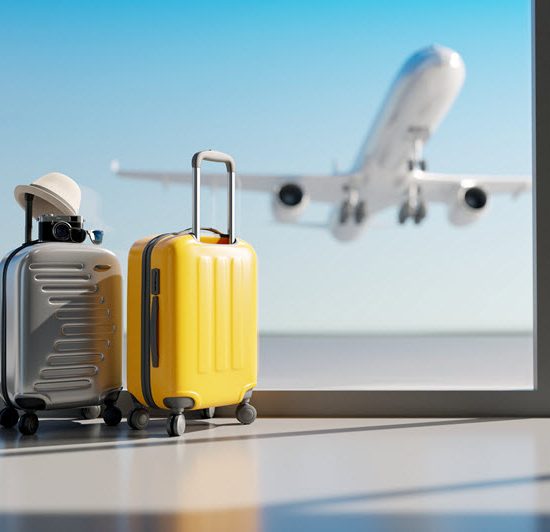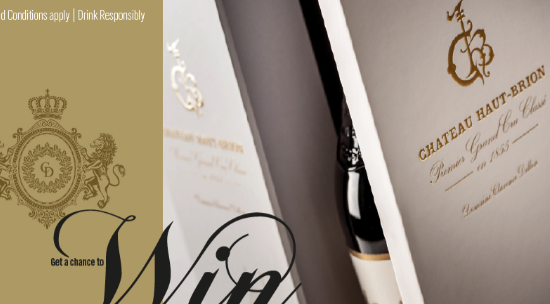
A Friday session as part of the Emirates Airline Festival of Literature presented an undeniably emotional moment – the author and subject on a public stage together for the first time.
The latter was Nujeen Mustafa, the Syrian teenager who travelled more than 5,000 kilometres in a wheelchair to escape the civil war ripping apart her homeland. The writer was veteran journalist Christina Lamb, who documented Mustafa’s journey in the eponymous book Nujeen: One Girl’s Incredible Journey from War-Torn Syria, her first since co-writing Pakistani activist Malala Yousafzai’s memoir, I Am Malala.
The pair met for the first time following Nujeen’s safe arrival in Germany in September 2015 – however the teenager was only recently granted asylum, allowing her to travel for the first time.
Despite only recently turning 18, Mustafa makes a compelling stage subject – a warm, incisive, and frequently funny, orator. Born Kurdish, suffering from cerebral palsy, and now a refugee in a foreign land, Nujeen describes a lifetime of being an outcast.
Today, she is an unlikely celebrity – a Nujeen emoji was recently introduced.
“I’ve lived all my life with the feeling of being repressed, the feeling I can’t express myself, of not belonging anywhere,” she says.
The book describes how Nujeen’s family fled Syrian government forces in Aleppo in 2013 as a 14-year-old, to arrive in the northern city of Manbij. Two years later the rise of ISIL forced Nujeen to set off alongside just her elder sister Nisreen – who rightly earned a standing ovation in Dubai for pushing her sister’s wheelchair for the entire, month-long journey.
“We didn’t want to leave, but our lives were at risk,” says Nujeen. “It was almost my first time outside – I could not leave the apartment, and finally I’m crossing Europe.”
Unable to walk, Nujeen spent most of her years stuck inside a fifth-floor apartment, where her restless mind was kept occupied by voraciously consuming documentaries and United States sitcoms, from which she learnt English.
“I was happy I’d made it to Germany, but also a little bit sad – it would be boring going back to that little room after such a long journey,” adds Nujeen.
“When I imagine myself aged 25 and still in this wheelchair as someone who had not done anything – that’s more terrifying than anything I faced.”
Among the reporters who documented Nujeen’s journey was Lamb, one of Britain’s best-known foreign correspondents and author of seven books. The 50-year-old has travelled the routes taken my most refugees.
“It’s such a difficult thing for an able-bodied person to do; meeting someone who’s done it in a wheelchair was just absolutely astounding,” she says. Within minutes of their first meeting, Nujeen pitched her story as a book.
“It would have been very easy to do a depressing refugee book, but what was lovely about Nujeen is that’s she very positive, she’s funny,” says Lamb, speaking to The National before the session. “I don’t think you could read her story and not think this is a person you wouldn’t want to have in your country.”
Lamb described the huge, morally corrupt industry that exists, with people smugglers charging around Dh5,000 for a cramped space among 60 people on a cheap rubber dinghy, intended for no more than 15 people, to make the crossing to Europe.
“People are making millions from this,” she says.
Nujeen eventually arrived in Greece on the same day the body of three-year-old Alan Kurdi was washed ashore, an image which became an emblem of the mounting tragedy. More than 5,000 refugees were drowned, suffocated or crushed while attempting to cross the Mediterranean and Aegean seas in 2016 alone. “Europe is not dealing with this – I feel ashamed to be European,” says Lamb.
Despite the clear humanity at the book’s core, both writer and author have continued to face a conservative backlash. Lamb recalled being asked by a teacher if she wrote the book as an open invite to wheelchair users to come to Germany.
While Nujeen reports happily how she is being “Germanised” – “I love to do things on time” she says – she reports that the mood towards refugees is shifting.
Ever optimistic, her response is a plan to start a fund to help refugees settle into European life as “good ambassadors” for Syria.
“To be told you’re a refugee – something different, junk, not a human being – is really hard to deal with,” she adds.
“Even now I’m under constant stress. I read the news everyday – there’s another protest or terrorist attack. As soon as something happens you’re are guilty under proven innocent.
“It’s sad and hard when you discover people are not focused on what you have in common, but what your differences are – our problems are the same, we’re the same species.”
• Nujeen: One Girl’s Incredible Journey from War-torn Syria in a Wheelchair is out now








